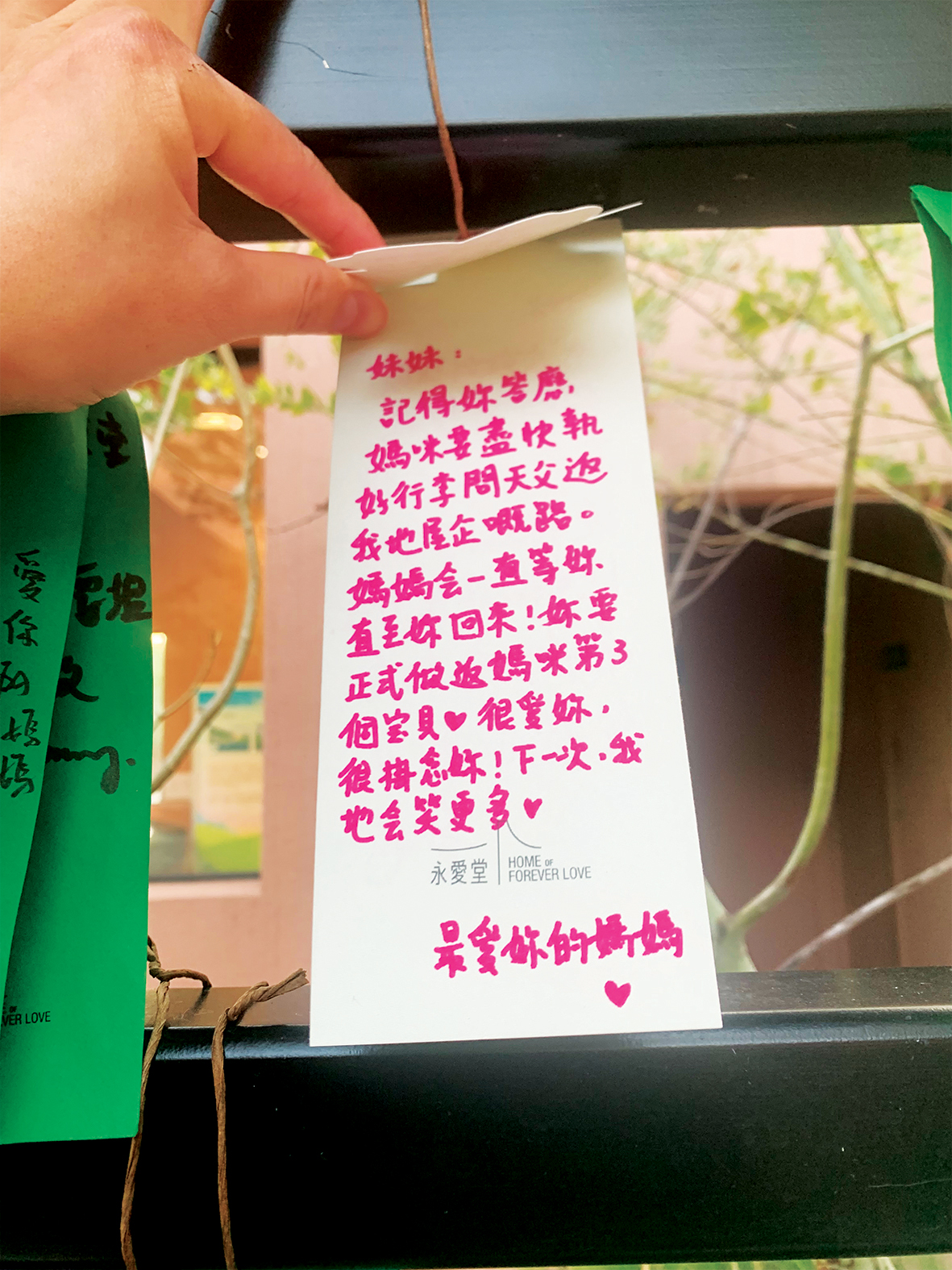Torn apart


Overwhelmed mother
Pregnancy loss, for whatever reason, is taboo in Chinese culture. The nature of gestation has created pressure on mothers, and the social stigma inhibits their willingness to seek help.
Cheuk, who gradually resumed work after months of physical recovery, still found herself overwhelmed by an unwavering wave of sorrow. She feels nobody truly understands the bond between her and her lost child. She still cherishes those moments when she felt the baby's gentle kicks in her belly despite the discomfort caused by its growth. The absence of empathetic comprehension among those close to her, including her husband, aggravated her anguish.
"It hurts me terribly when others try to comfort me, saying 'it's alright, you are still young and you will have another baby'," says Cheuk, as tears welled up in her eyes. She said that few of them truly grasp that, for a mother, a miscarriage is indistinguishable from losing a child who would have grown up alongside them.
She tried hard but failed to divert herself from the shock and misery she had gone through. The prejudices against miscarriage in society exacerbated her loneliness.
Many people, including some fathers, see a miscarriage as inauspicious. They tend to avoid open discussions about it and may prohibit the mother from bidding a final farewell to the fetus, citing superstitions of bad luck. Some even blame the mother for the misfortune, casting aspersions on whether she had done anything inappropriate during her pregnancy.
Cheuk says mothers face immense pain and tend to blame themselves for a miscarriage, pointing out that most natural abortions occur because there's no other choice. The husband suggested new trips or taking up new hobbies like he used to help Cheuk overcome her grief without realizing that his wife underwent drastic changes in her emotions. As Tang's frustrations mounted, Cheuk began blaming herself for her husband's low spirits, aggravating her emotional stress.
The couple tried hard to avoid discussing the trauma which, instead of putting their lives back on track, led to continued quarrels. "I can't understand why a miscarriage could escalate from a health issue to a marriage problem," laments Tang.
Limited resources
In an attempt to rekindle the family warmth they once had, the couple decided to seek help elsewhere, without realizing they'd embarked on yet another challenging path. "Since the miscarriage, we've been searching for organizations specializing in this area, but nobody reached out to us on their own volition," recalls Cheuk, calling it one of her biggest disappointments.
Many parents don't realize the need for psychological counseling after a pregnancy loss as severe emotional problems may not show up immediately, she says. Few professionals they came across during the miscarriage procedure or afterward told them they could seek emotional support. "Even a leaflet or verbal notification would have saved us from months of desperate searching," says Cheuk. They had learned that some public hospitals offer emotional counseling services for parents like them. But she found herself ineligible for such support as her miscarriage was performed in a private hospital. She was instead referred to a public hospital's general psychiatric department and had to wait over three months for her first consultation session.
Subsequent appointments at the hospital were about two months apart, with less than one hour allocated for each session, which allowed the mother to reveal her problems but left no room for feedback from doctors. Adding to her frustration was that throughout the 18 months of counseling, her doctors were changed four times without informing her in advance. According to Cheuk, one of the doctors told her after their first counseling that he would not continue with the therapy as he was acting only temporarily.
"Recounting the experience of miscarriage and my repeated attempts to build up trust with new doctors made me feel like having rekindled my wounds," says Cheuk. Her psychological stress persisted despite several counseling sessions at the hospital, forcing the couple to turn to social organizations for solace. It was only during their visit to Grace Port-Caritas Miscarriage Support Centre that they found comfort. They were advised and consoled by experienced social workers on the path to healing their wounds.
- Tongji University's Wu Jiang assumes presidency of architects' Asia council
- PLA carries out drone training operations near Dongsha Islands
- PLA monitors US naval vessels transiting the Taiwan Strait
- Losar warmth in a new home
- New carrier rocket built by Beijing company fails in maiden flight
- Toxic gas leak in Anhui classified as major work safety liability accident




































